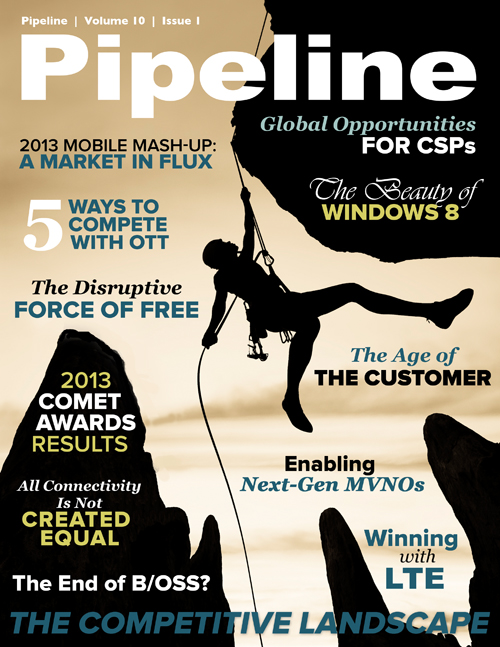The Disruptive Force of Free: Lessons Learned from Low to No-Cost Services
FreedomPop users can take advantage of 500 megabytes (MB) to 1 gigabyte (GB) of free wireless connectivity per month and earn additional free access through a variety of incentives, including promotional offers, social network recommendations and referrals. Users who don’t want to jump through hoops can just pay for additional access, but at prices that are substantially lower than the going rate of many leading CSPs.
“What Skype did to voice, we want to do for broadband,” FreedomPop CEO Stephen Stokols told Forbes last December. And in a recent press release announcing the company’s expanded coverage via Sprint’s 3G network he added, “FreedomPop users can connect to the internet across the entire nation, leaving no reason to continue paying high monthly internet bills ... from large, expensive carriers.”
FreedomPop also plans to unveil an open Wi-Fi service model in the future by way of a software update for its wireless hotspots. The upgrade will facilitate a dual SSID capability that lets users share service, effectively turning each hotspot into an element of the broader network. From Pipeline’s perspective, this is a feature to watch, as it could theoretically be extended to any wireless device.
Free Mobile
In telecom you’d be hard-pressed to find a company more disruptive than Paris-based Free Mobile. The innovative service provider is turning the wireless market in France upside down: Orange has lost 615,000 subscribers there since Free Mobile entered the fray in January 2012, and France Telecom’s profits fell nearly 50 percent during the same period. The French have flocked to the underdog’s mobile package, which includes unlimited messaging, internet and calling to 40 countries for €19.99 a month (approximately US $26), while subscribers who already use Free for home internet pay only €15.99 a month. That’s about two-thirds less than the price of similar service from the market’s incumbents, but in a region where every euro counts, it’s not surprising that this underdog service provider added six million customers in one year.
But what about the free stuff? Free Mobile’s home-internet user base receives a basic tier of wireless service—unlimited texting and internet, plus two hours of calls—at no cost. It’s a wholly unique offering in the mobile marketplace.
The Free revolution is being led by iconoclastic French entrepreneur Xavier Niel, who some have called the French Steve Jobs. “My greatest point of pride is that last year we gave the French €2 [billion] in purchasing power,” Niel recently told the Financial Times. “Each French person, I gave €40 through my work.”
Free has a wholesale agreement with Orange for 3G cellular capacity, but its secret sauce is Wi-Fi and an ingenious set-top box that turns every home- or business-internet customer into a piece of its mobile offload network. Free began life as an ISP that offered the first triple-play service in France (several years ahead of the US, in fact). Its proprietary set-top box, the Freebox, can operate on either fiber or DSL transport and is configured with dual SSIDs—one for the private home network, one for the mobile offload network. As Free’s internet-service footprint grows, so do its mobile network capabilities: it boasts more than four million access points in France, and in many densely populated areas it can rely on low-cost Wi-Fi with a fiber backbone to handle its mobile traffic rather than costly cellular transport.





















